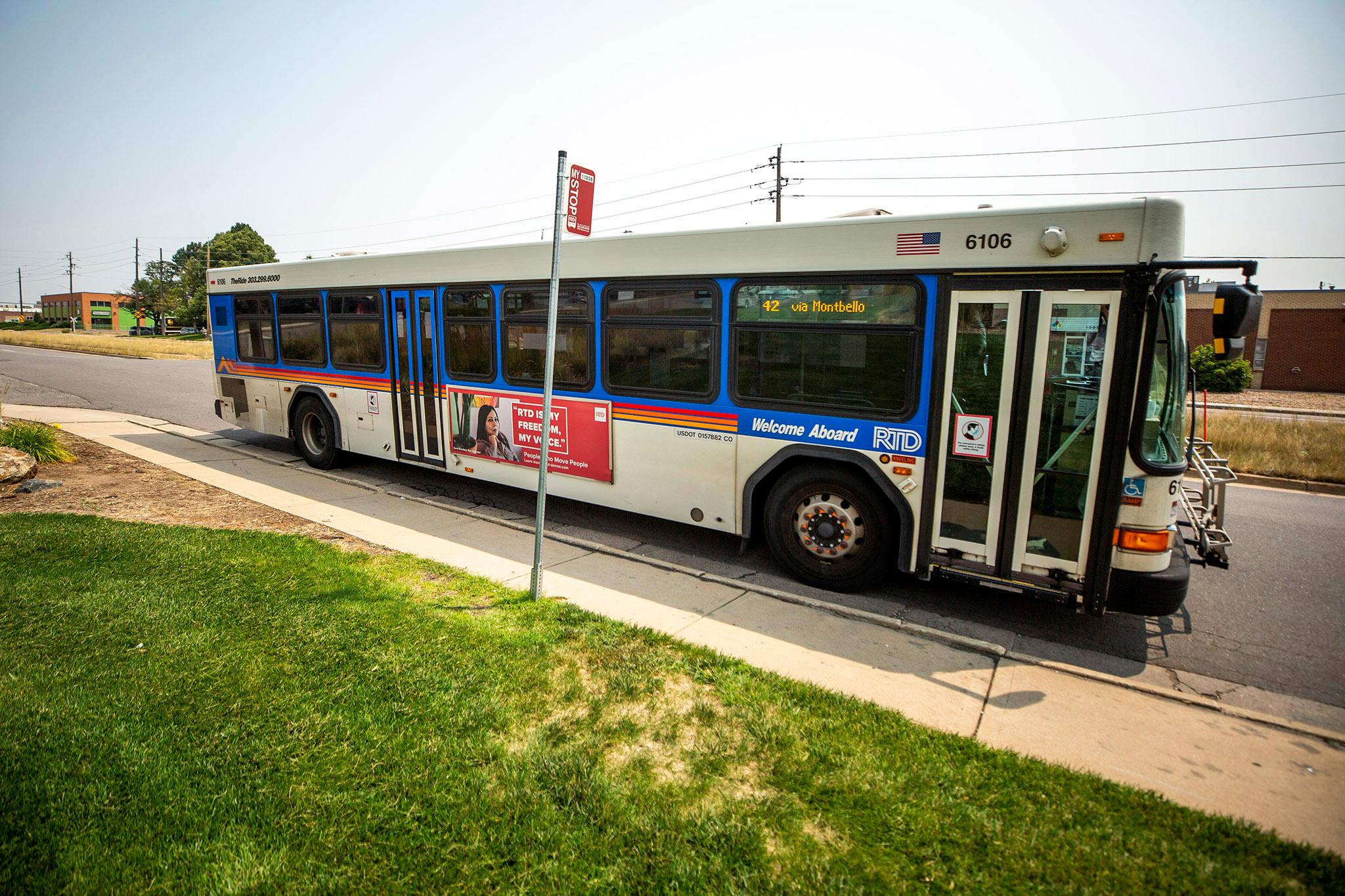In District B, incumbent Shontel Lewis declined to run again. JoyAnn Keener Ruscha is running as a write-in.
What's your elevator pitch for why voters should choose you?
I am an advocate for equitable route planning, rectifying existing ADA violations, and working towards a robust transit system that offers fares at the lowest possible cost. I will never vote for any proposal that disproportionately impacts low-income riders - and I will stand with the RTD's workforce and advocate for their right to fair pay, benefits, and safe working conditions.
What is the biggest problem facing RTD right now, and what would you do to fix it?
I believe RTD should let go of the FasTracks "hub-and-spoke" model and focus on filling in the bus grid and running buses that come every 15 minutes. RTD should also focus on worker retention by ensuring that operators are afforded thriving wages and benefits, as well as safe working conditions. Finally, RTD should simplify its complicated fares structure and reduce fares for all.
As it emerges from the pandemic, RTD has prioritized transit service aimed at low-income and minority communities. Some once-popular routes that served wealthy areas remain suspended. Do you agree with this approach?
Yes
Explain your reasoning.
RTD's data shows that routes serving low-income neighborhoods have higher ridership, signaling that these cuts favored both optimization and equity. That being said, I support creating BRT lines between Denver and the suburbs. I also believe RTD should partner with more local governments for transit, which would reduce stress on RTD's regional system.
What should RTD do to make passengers feel safer?
As an abolitionist, I would support a pilot that provides alternatives to armed security - we don't need people with guns checking tickets. I also support the creation of supervised safe consumption sites. This would improve health outcomes of people who use drugs while also reducing drug usage on RTD property. Finally, I support changing protocol so operators can get prompt help when needed.
Do you use public transit in your life now?
Yes
If yes, how often? What do you use it for? If not, why not?
Yes, both my child and I use public transit. My son has been a public transit user since a young age and we are dependent on RTD for school. Even though my son is now old enough to drive, we elected to stay a one-car family and utilize alternative means of transit when possible. We also take advantage of regional services like CDOT's Bustang.
Should RTD encourage cities to build more dense development that could yield higher ridership?
Yes
Explain your reasoning.
In most cases, cities should look to build "up" and not "out." I am a proponent of transit-oriented development, which focuses on mixed-use bicycle, transit, and pedestrian- friendly design. People will opt-in to public transit if it's convenient, but most of the metro isn't built for it (or we don't run enough service for riders to justify the travel time).
RTD's short-term financial picture has stabilized, but there are no plans to expand service in the foreseeable future. Should RTD ask voters for a tax increase to enable that?
Yes
Explain your reasoning.
I support a ballot measure if:
- The plan is equitable and does not harm transit-dependent riders;
- Includes paratransit and accessible infrastructure needs; and
- RTD can show voters how the money will be spent and what accountability measures will be put in place
Should state government contribute more funding to RTD in order to expand service?
Yes
Explain your reasoning.
RTD is state-created agency that covers 2,342 square miles and over half the state's population. The agency is also in financial distress. At the very least, the state should invest into RTD for long-term financial stability.
Should RTD continue to save money toward the Boulder-Longmont train, and other unfinished FasTracks projects?
No
Explain your reasoning.
I do not believe that RTD should divert additional funds for FasTracks rail at this time, but it would be unethical to ignore the transit needs of the communities that paid for something they didn't get. For example, 18 miles of BRT was also part of the FasTracks promise, but not a single mile has been built.
Should RTD reduce or eliminate its fares?
Yes
Explain your reasoning.
RTD should eliminate regional fares in favor of a single fare. If RTD must keep an airport zone, then DIA workers should not have to pay the increased rate. I would also support bringing back bulk discounts for non-profits that serve low-income riders and simplifying the current low-income fares program. The program had great intentions, but it has shown to be confusing and sometimes exclusionary.
Should RTD do more to better meet the needs of the disability community?
Yes
Explain your reasoning.
RTD should include low-income Access-a-Ride users in our low-income fares program. The current practice of excluding riders on the basis of disability is discriminatory. RTD should also guarantee "legacy status" to paratransit riders when a fixed route is dropped so they don't lose access. Finally, RTD needs to partner with local governments to fix its bus stops that aren't compliant with the ADA.












